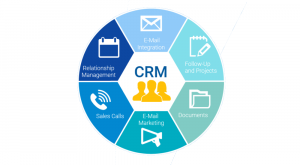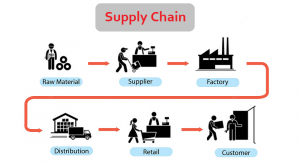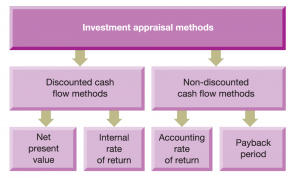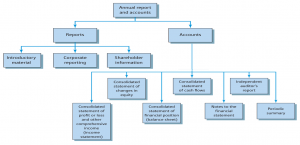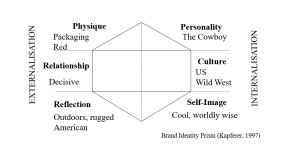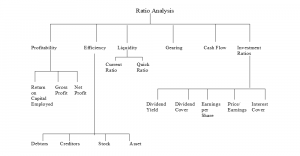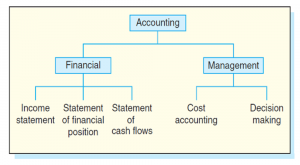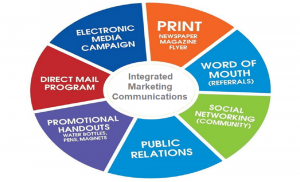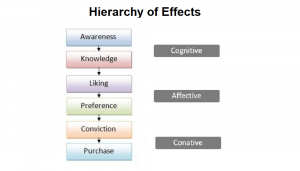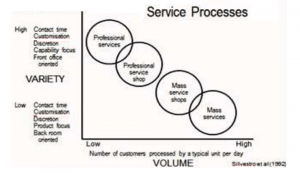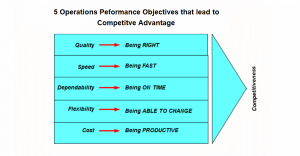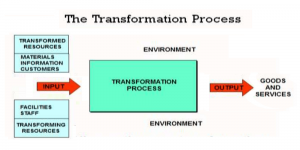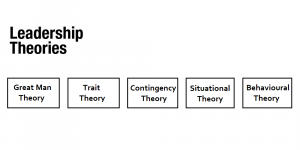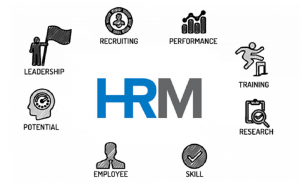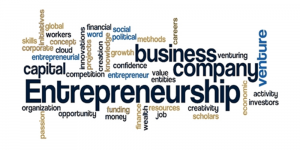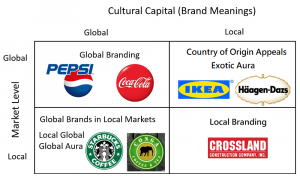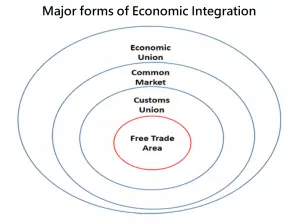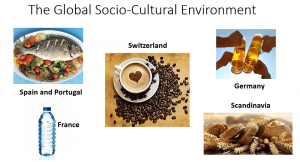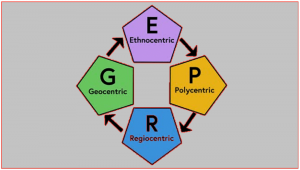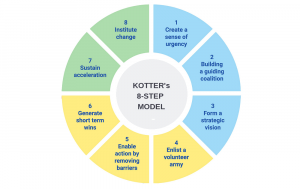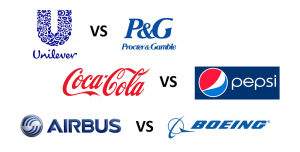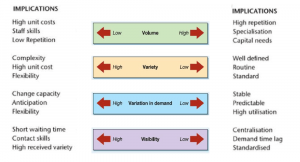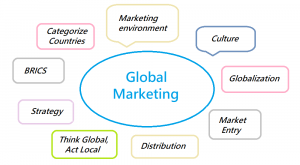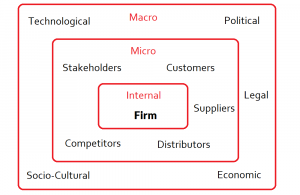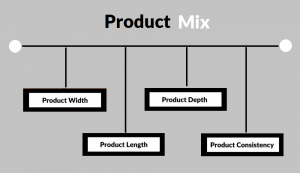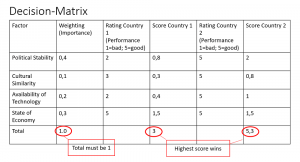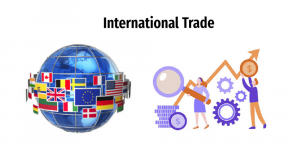Customer relationship management (CRM) is a strategy, used in combination with software system, to manage a firm’s interactions with existing as well as potential customers. CRM systems consolidate customer data from various channels and analyses it to understand more about the customers needs, behavior, and preferences. Here’s more on why capturing customer experience is key […]
Top Market Research reports and databases for data
Market Research reports, sources, and database (Mintel, MarketLine Advantage, PASSPORT) for consumer, country, industry, and financial data for every marketplace in the world. These are excellent resources to collect secondary data. Mintel Academic: Research Reports, Sources & Guides Mintel Academic: UK market research reports covering business finance, business technology, business healthcare, leisure, clothing and footwear […]
Supply Chain Management: Comprehensive Guide and Strategies
Learn the importance of effective Supply Chain Management (SCM) in today’s business world. Know more about the various SCM concepts, strategies, tools, and techniques. What is Supply Chain? A supply chain is basically a network between a company and its suppliers that helps it to produce and distribute products. The more efficient the supply chain, […]
Internal and External Sources of Finance: Building Blocks of Business Financing
Identify the key external and internal sources of finance, and learn to appraise the potential appropriateness of each of these sources of finance. The investment process involves obtaining funds, evaluating available investment opportunities and making a selection, structuring the terms of the investment, implementing the deal and monitor progress, achieving returns and exiting from the […]
Capital Investment Appraisal Methods
Understand the importance of capital investment planning and appraisal. Learn about the key investment appraisal techniques. Understand the importance of human behaviour issues in investment decision making. Businesses need to make investments and the nature of investment decisions is such that large amounts of resources are often involved and relatively long timescales are involved. It […]
Budgeting 101: How Firms Control Their Finances
Understand the purpose of budgets, learn to interpret information provided in budgets, and learn to critique the benefits and shortcomings of budgets. Why is Budgeting Important So what is the purpose of budgets? We all budget in our personal life, such as for holidays or making a bigger purchase. Businesses also do the same. A […]
What’s Inside an Annual Report and Why Does It Matter?
Understand the annual report and its key components and why they are more just numbers. Here’s your ultimate guide to company performance metrics. Learn to interpret and analyse the Income Statement and Statement of Financial Position. What is the Annual Report? The annual report is a comprehensive report that provides information on the financial performance […]
Kapferer Brand Identity Prism Explained
The Kapferer Brand Identity Prism is a branding tool commonly used by businesses to create a strong brand identity that resonates with its customers and sets itself apart from competitors. It provides a framework for visualizing the various elements that make up a brand’s identity. What is the Brand Identity Prism? In 1986, Jean-Noël Kapferer introduced […]
Understanding Financial Ratios: Definitions and Examples
Understand more about financial ratios and what they inform about the business. Learn to calculate and analyse some key financial ratios and draw overall conclusions about a business based on these ratios. “A set of accounts is like a book, which contains the story of a business…but like any good book there is a hidden […]
Cost Accounting 101: Understanding the Basics
Cost accounting involves summarizing and analyzing all the costs associated with the business activities. This practice also makes it easy to understanding the various costs associated with the business and how those costs impact the business and its profits. Learn more about cost accounting and why its needed in organisations. What is Cost Accounting? Management […]
Understanding Marcom: Its objectives & tools used to achieve them
MarCom (short for Marketing Communication) is the use of various methods to promote products or services to the target audience. MarCom has various objective and marketers can make of use of various tools to help achieve those objectives. Marcom Objectives The most common objectives of MarCom include building a positive relationship between the brand and […]
Hierarchy of Effects Theory Explained
The Hierarchy of Effects Theory is a model in marketing and advertising that describes the sequence of stages a consumer goes through when making a purchase decision. These stages include awareness, knowledge, liking or interest, preference, conviction, and purchase. The theory proposes that advertising and marketing efforts can guide consumers through these stages, leading them […]
Brand Positioning: Concepts
Brand positioning is about creating a suitable image for a brand in the minds of the target audience. As part of this process, the unique features of the brand are indetified and is communicated effectively to create a distict image of that brand to the target market. While brand positioning and positioning are part of […]
The Key Elements of Service Operations: A Comprehensive Guide
Service operations refer to the business and operational activities involved in actually delivering a product or service to a customer, including service design, service delivery, and service management. Learn more about the distinct concepts within the broader field of service management. Understand how firms manage service quality and optimize their service operations for maximum efficiency, […]
The Five Essential Performance Objectives of Operational Success
Performance objectives of operations are measurable goals that a company sets in order to ensure that its operational activities are carried out as efficiently and effectively as possible. Learn how organizations use strategic performance objectives to improve operations, optimize operational efficiency, maximizing profitability and to gain competitive advantages. What are the Performance Objectives of Operations […]
Understanding the Transformation Process in Operations Management
The transformation process refers to the series of activities that transform inputs into outputs and is a core concept in the study of operations management. This framework is commonly used in operations management to optimize the various processes and to streamline operations. Introduction The transformation process refers to the various activities that businesses undertake to […]
Principles of Management by Henri Fayol
French management theorist Henri Fayol developed the concept of the 14 Principles of Management that describe how managers should ideally organize work and manage employees in a business environment. Henri Fayol’s Contribution to Management Henri Fayol is credited with developing one of the earliest comprehensive management theories. His contribution to the field of management science […]
Global Leadership in Modern Times: An Intersection of Culture, Politics, and Economics
Find insights on effective global leadership. Understand leadership within the context of global organizations and the interdependent world. Understand the traits and characteristics of a Global Leader that promote cross-cultural collaboration. Need for Global Leaders The world today is highly interconnected and interdependent, and operations of businesses, organizations, and governments nowadays span countries and cultural […]
Blockbusters Case Study
A classic example of an organisation that failed to innovate and strategically adapt to both changes and pressures in the external environment (particularly technological changes) and its strategic positioning in a rapidly changing marketplace was Blockbuster. Blockbuster was a company that dominated the video rental market in the 1980’s and 90’s. From its start in […]
Breaking Down the Generational Divide: Understanding X, Y, Z and Beyond
A Guide to the various Generations, from Boomers to Gen Z and beyond. Understand the various generations of people, their differences and similarities, their unique experiences and perspectives. Learn about the various strategies to communicate and manage a multi-generational workplace. Understanding the Various Generations BabyBoomers: Born between 1945 and 1964, C suite jobs, settled and […]
Industry 4.0: A Comprehensive Guide to the Fourth Industrial Revolution
Industry 4.0 refers to adoption of cyber physical system like Internet of Things and Internet of system. 1st I.R- Used water and steam to mechanise production. 2nd I.R.- Used Electric Power to create mass production 3rd I.R- Used Electronics and I.T to automate. 4th I.R- Application of Information and Communication Technology ( Cyber Revolution, 4 […]
Entrepreneurship Theories & Concepts: All About Creating a Winning Business
Entrepreneurship is the process of starting and running a new business with the goal of making a profit. It requires a combination of vision, creativity, perseverance, adaptability, business acumen, and willingness to taking risks. It typically involves identifying a commercial opportunity, developing a business model, secure funding, assembling a team, and bring a product or […]
Key Traits of Successful Entrepreneurs
Entrepreneurial traits and characteristics are the personal qualities and skills that successful entrepreneurs possess. Let’s take a closer look at some of these traits. The description of the enterprising person is drawn from what is known about entrepreneurs; the idea being that the enterprising person shares entrepreneurial characteristics. Just as there are different types of […]
What is Digital (Social Media) Marketing?
Digital marketing is marketing using digital channels, such as the internet, social media, email, mobile apps, and more. It enables businesses to reach out to potential customers through various electronic devices, including desktop computers and mobile phones. The Rise of Social Media Studies reveal that people spend almost one quarter of their online time on […]
Global Marketing Gone Wrong: The Most Embarrassing International Marketing Fails
Global Marketing Gaffes: Here are some examples of how companies failed when localizing their business in different countries leading to embarassing results. Braniff International Airlines translated a slogan touting its finely upholstered seats “Fly in Leather” into Spanish as “Fly Naked.” Clairol launched a curling iron called “Mist Stick” in Germany even though “mist” is […]
Finance and Accounting: Books, Journals and Resources
Best Finance and Accounting: Books, Journals and Resources. Best Finance and Accounting Books Here are the best books on Finance and Accounting that are aimed at undergraduate, graduate and MBA students studying finance and accounting modules. Accounting for non-accounting students by J.Dyson. Pearson. Aimed at undergraduate and graduate students who are studying accounting as part […]
Global Retailing
Global Retailing is any retailing activity that crosses national boundaries. For centuries entrepreneurial merchants have ventured abroad to seek out merchandize and to establish retail operations. Today’s global retailing scene is characterized by great diversity. Diversity in the Global Retailing Scene Department stores literally have several departments under one roof, each representing a distinct merchandise […]
Global Branding and Glocal Branding Strategies
Branding is about creative a strong perception of a company and its product/services in the minds of the consumers. A truly global brand: meets the wants and needs of a global market is offered in all world regions has the same brand name, and in some instances, a similar image and positioning throughout the world. […]
Economic Integration: Various Levels Explained
Economic integration is an arrangement between several countries to improve trade between them. In the global landscape, Economic Integration usually can be classified into various additive levels. Regional Economic Integration (Preferential Trade Agreement) The WTO promotes free trade on a global basis, however countries in each of the world’s regions are seeking to liberalize trade […]
Self-Reference Criterion (SRC) Explained
In attempting to understand anther culture, we inevitably, interpret our new cultural surrounding on the basis of existing knowledge of our own culture. There is a human tendency towards ethnocentricity. These ‘biased’ interpretations happen unconsciously, and they prevent cultural empathy. Lee (1966) introduces the self-reference criterion to characterize our unconscious reference to our own cultural […]
The EPRG Framework/Model of International Business
EPRG (acronym for Ethnocentric, Polycentric, Regiocentric, and Geocentric) is a framework to explain internationalization approaches of businesses. It is used in the internationalization process of businesses, and helps understand the type of orientation a firm may have towards international business. The EPRG Framework explains Management assumptions (conscious & unconscious) or beliefs about doing business around […]
Change Management: Various Models/Theories to manage change better
There are several change management models that help organisations implement change successfully. Here we take a look at the various models and theories to help manage change. Introduction to Change Management Change management refers to changes to organisational structures or processes, and is indispensable for businesses to succeed and grow. Since organisational change has a […]
The Rising Power of Emerging Markets
The Emergence of a New Economic Powerhouse: The rise of BRICS (Brazil, Russia, India, China and South Africa) as the 21st century’s engines of global economic growth. There is a shift of power within the world economy towards these countries, especially China. These countries look interesting for global marketers due to the following reasons: Growing […]
Human Resource Management (HRM): Books, Journals and Resources
Best Human Resource Management (HRM) Books, Journals and Resources. Books Essentials of international human resource management : managing people globally. International human resource management : the transformation of work in a global context. Author:Lucio & MacKenzie. Intercultural management : concepts, practice, critical reflection Author: Holtbrügge, Dirk. Essentials of international human resource management : managing people […]
Understanding Global Competition and Strategies Moves
Understand the structure of Global Competition and resulting strategic options. The Globalization of Competition An inevitable consequence of globalization of markets is the growth of intense competition on a global scale. Liberalization, deregulation and privatization are the three forces that are transforming the global business environment and lead to a greater number of competitors and […]
The 4 Vs of Operations Management Explained
In Operations Management, the 4Vs refer to the four dimensions used to assess operations processes. Typology of Operations: 4Vs Operations can be categorised into four dimensions, referred to as The 4Vs typology. These four dimensions are Volume, Variety, Variation in demand, and Visibility. Volume It refers to the Quantity (units) of products that a company […]
Bottom of the Pyramid (BOP) Markets
Prahalad (2004) and Karnani (2007) discuss the role of private sector companies in responsibly serving bottom of the pyramid markets (low income markets) in efforts to reduce poverty. Prahalad (2004) suggests that businesses and governments should stop thinking of the poor as victims but as value-demanding consumers. BOP markets should be part of core business […]
Global Advertising: Breaking Down Borders
Global advertising may be defined as messages whose art, copy, headlines photographs, taglines, and other elements have been developed explicitly for worldwide suitability. A standardized ad campaign requires a key message, delivered to the target audience, that must resonate across countries and cultures. Here are a few Examples: Nike (“Just do it”) McDonalds (“I’m lovin’ […]
Global Marketing: Definition, Scope, Strategies, Examples
In a globalized world, the entire world is a marketplace, and market segments are no longer considered based only on the basis of national borders. Products have always been travelling and international trade has existed for centuries. While international trade is not new, the mass-marketization of products in a globalized marketplace is new. Definition of […]
Marketing Environment: Understanding the internal and external environment
Marketing operates in a complex and changing environment. The marketing environment is the environment that a business operates in (Whalley 2010, p. 50). It involves the actors and forces outside marketing that affect marketing management’s ability to build and maintain successful relationships with target customers (Kotler et al. 2013). The marketing environment involves an internal […]
Product Adaptation and Standardization
Every business needs product/services that it can sell to potential customers. While firms would prefer to have standardized products that they can sell over the world, there are various factors that compel firms to adapt their products. In general, products that offer high core product benefits and require less support services are better suited to […]
Product (P of Marketing Mix) & Product Mix: Definition, Features, Examples
Product is the first element of the marketing mix, and developing a product strategy requires coordinated decisions on product mixes, product lines, brands and packaging and labelling. In planning its market offering, marketers need to think through various levels of the product: the core benefit, the basic product, the expected product, the augmented product and […]
Organizational Structures for Global Marketing
The success of a global strategy is influenced by the selection of an appropriate organizational structure to implement that strategy. The ideal structure of such as an organization should be a function of: the products and services to be sold in a marketplace the external and internal environment Theoretically, the way to develop a global […]
Decision-Making Matrix (Pugh Matrix)
The Pugh Matrix is a decision-making tool that is used to compare multiple alternatives and select the most favourable one. In this method, the various options are evaluated based on several weighted criteria. This is a variation of the L-shaped matrix. This tool is also referred to by many other terms such as decision grid, […]
Global Market Segmentation: How firms assess and select markets
Global Market Segmentation: Here’s how firms screen and select country markets to enter. Importance of Entering the ‘Right’ Market There are over a couple of hundred countries and territories, but most firms do not compete in all those markets. Adding another country to a company’s portfolio requires additional investment and represents a new business risk. […]
Human Resource Management (HRM): Definitions, Concepts, Theories
Human resource management (HRM) includes processes and activities for effective workforce management. Learn more about the various practices and theories related to HRM. Importance of Human Capital The success of businesses depends a lot on the workforce. A motivated and skilled workforce can do wonders to the growth of the company. However, there are many […]
Market Entry Modes in Global Marketing: Expansion Strategies
Foreign Market Entry Strategies: Various ways to enter the international market. Any company that wants to enter the international market has to take some strategic decisions pertaining to that foreign market; it has to analyse the market and plan its entry in that market, besides considering other factors. Expansion Strategy Concentration versus Diversification Concentration: A […]
International Marketing: Scope, Strategies, Examples
International marketing refers to the activities related to the sale of goods and services of one country in other countries. While international trade is about commerce between countries, international marketing is about promotion of products and services to the international market. Domestic Marketing Strategy Marketing that is aimed at a single market, the firm’s domestic […]
Standardisation vs Adaptation (Glocalization) in International Marketing
Marketing mixes can be standardized (global) or they can be adapted (local). Marketing mixes of most global companies tend to be “glocal” with some amount of localization. Standardisation vs Adaptation in International Marketing Once the firm has decided which countries to enter and which entry modes to use the next issue concerns how to design […]
Internationalization: Definition, Models, Barriers
Internationalization is the process of expanding business operations beyond domestic boundaries to international markets using various market entry modes. Let’s understand the motives behind a company’s decision to compete in global markets, and the right time to internationalize. What is Internationalization? Today most large companies operate outside their home markets. “Internationalization” is the term used […]
